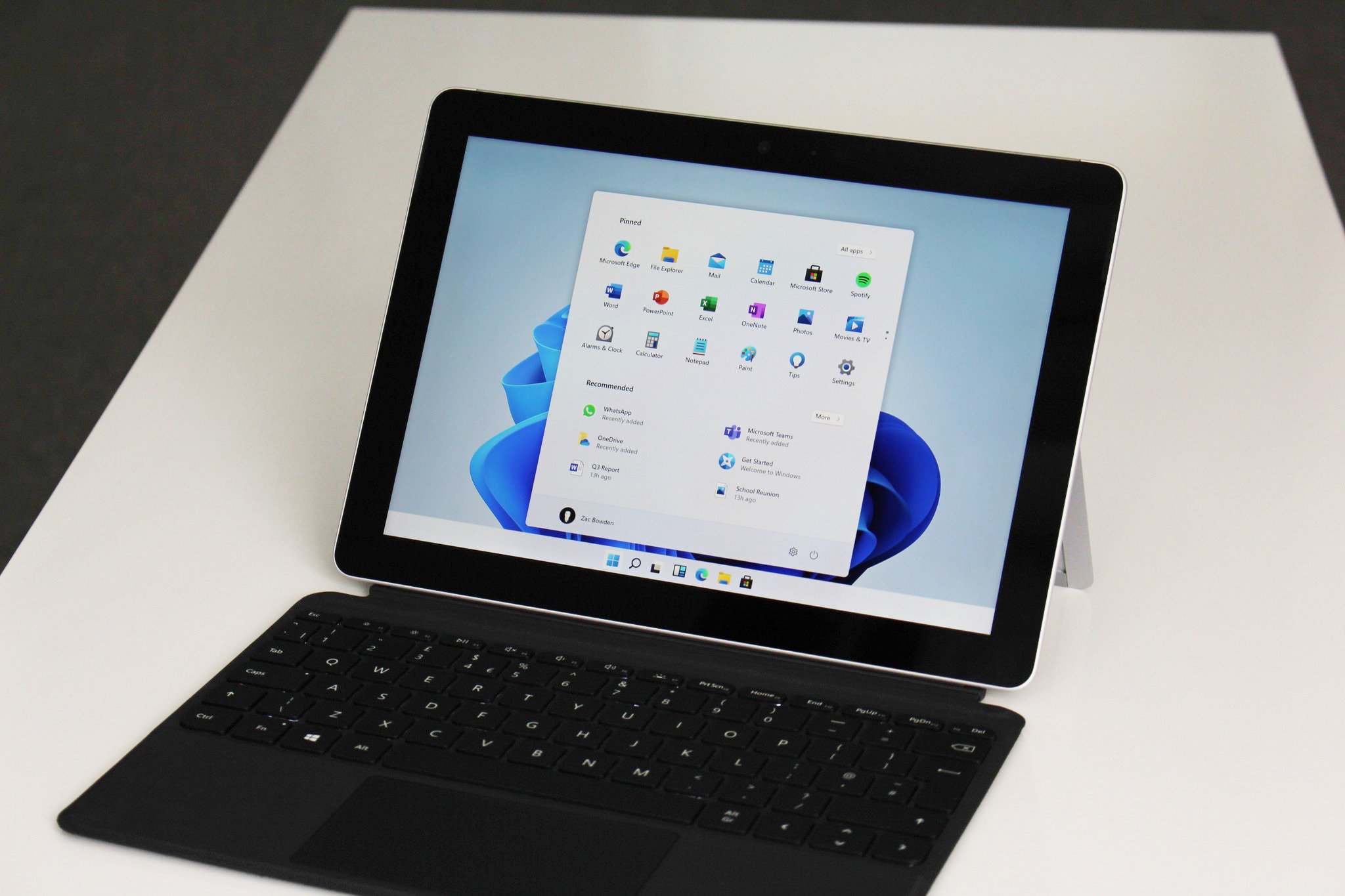How close are we to the software of Ready Player One?
The software of Ready Player One is amazing... and out of our reach for now.
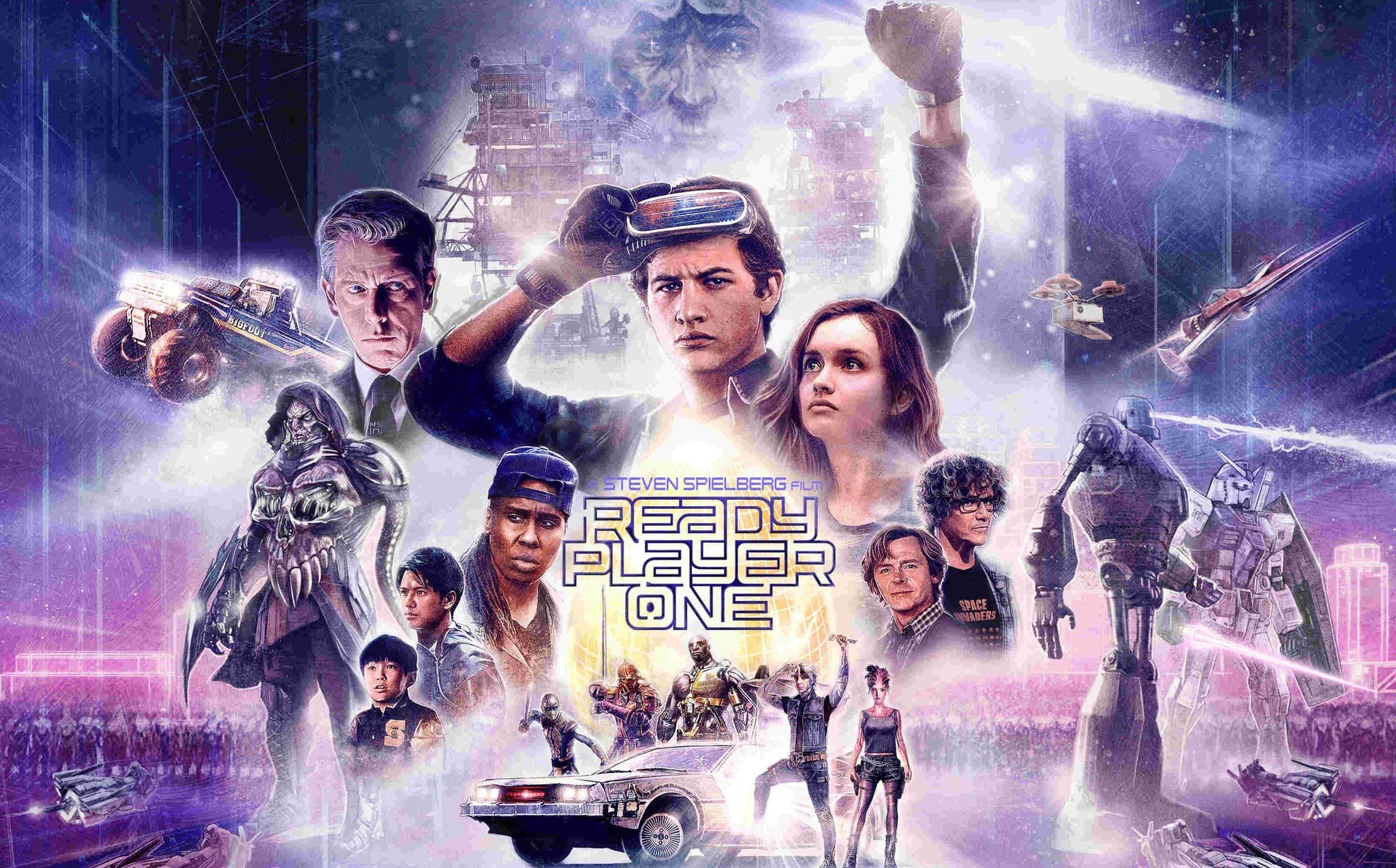
In Ernie Cline's best-selling novel Ready Player One, almost all of the action takes place in the O.A.S.I.S. — a giant video game that has become the virtual home for most of the inhabitants of the world as well as their escape from the energy crisis of 2045. With the release of the movie, I wanted to take a look at the hardware and software needed to bring the O.A.S.I.S. to life and if we can even accomplish that feat with today's technology.
We're still quite a way from the hardware capabilities detailed in Ready Player One, but that immersive hardware is something we can extrapolate from today's technology. The software is even more fantastical; but software is also advancing far more rapidly than hardware, so we may see the O.A.S.I.S. sooner than you think. Let's spend some time breaking down the separate parts of the software and how each part needs to work together to make the O.A.S.I.S. work.
How close are we to the hardware of Ready Player One?
Console Emulation
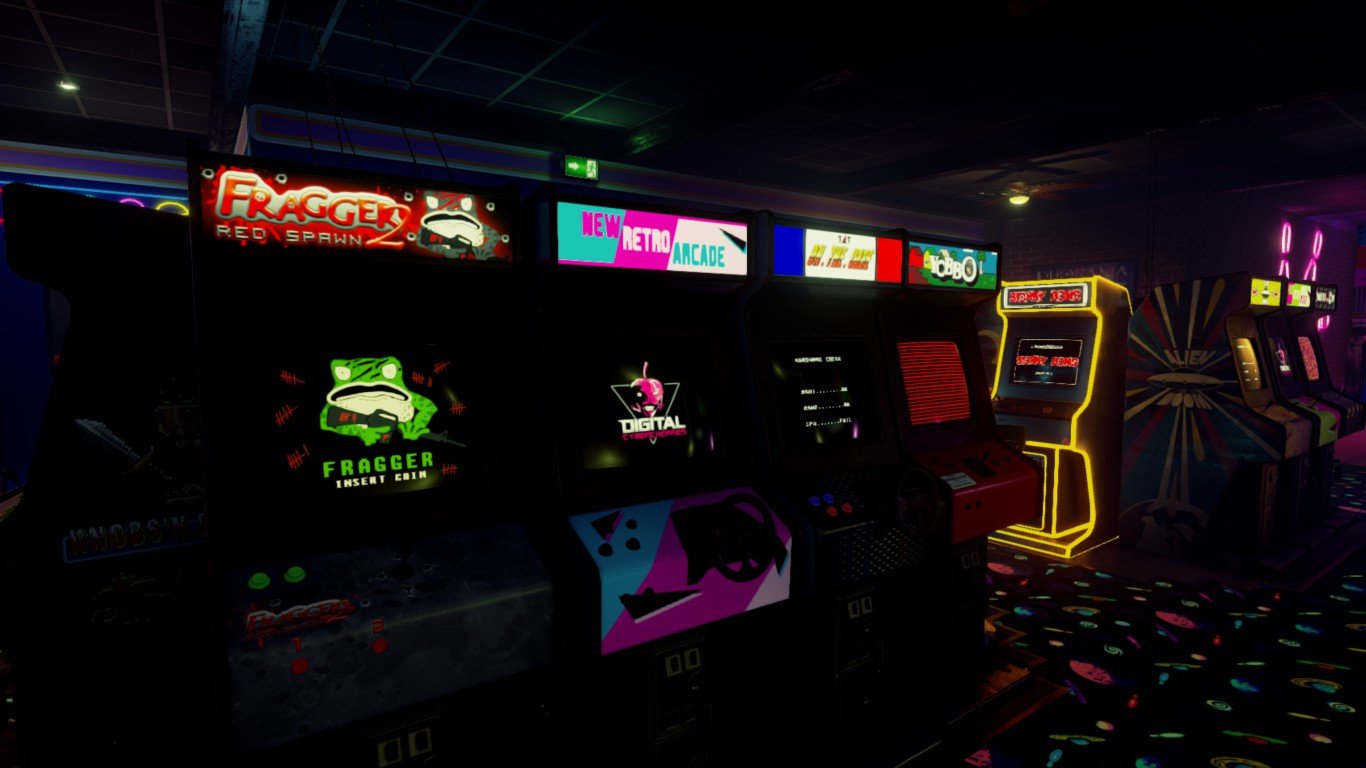
Its hard drive was filled with old books, movies, TV show episodes, song files, and nearly every video game made in the twentieth century.
Console emulation is nothing new, these days there are emulators for just about any console and even the Xbox One uses emulation to let you play older Xbox games. In Ready Player One, the emulators seem to be baked into the O.A.S.I.S. software to allow anyone to play any game from any time period they want.
In the present ROM emulation is still a tricky business, you have to own the original to be allowed to emulate it or it needs to be available as freeware. There are copyright issues to overcome, so unless these companies agree to allow emulation, sell their rights, or government oversight collapses (as in the book), that seems unlikely. There is made mention of Gregarious Games buying up all the video game licenses to allow them to be ported to the O.A.S.I.S., so perhaps all we need is one company to control it all. No big deal.
The closest thing I have seen to the emulation shown in the book is a game released by Digital Cyber Cherries called New Retro Arcade. Like Aechs Basement in the book, New Retro Arcade has rows of classic arcade machines to play as well as games like skeeball and air hockey, all wrapped in 80's nostalgic decor. You can even add your own ROMS and artwork to make the arcade cabinets look authentic, and although it doesn't allow emulation of entire systems in the way Aechs basement does, it gives you a glimpse into a future filled with retro nostalgia.
All the latest news, reviews, and guides for Windows and Xbox diehards.
Limitless worlds
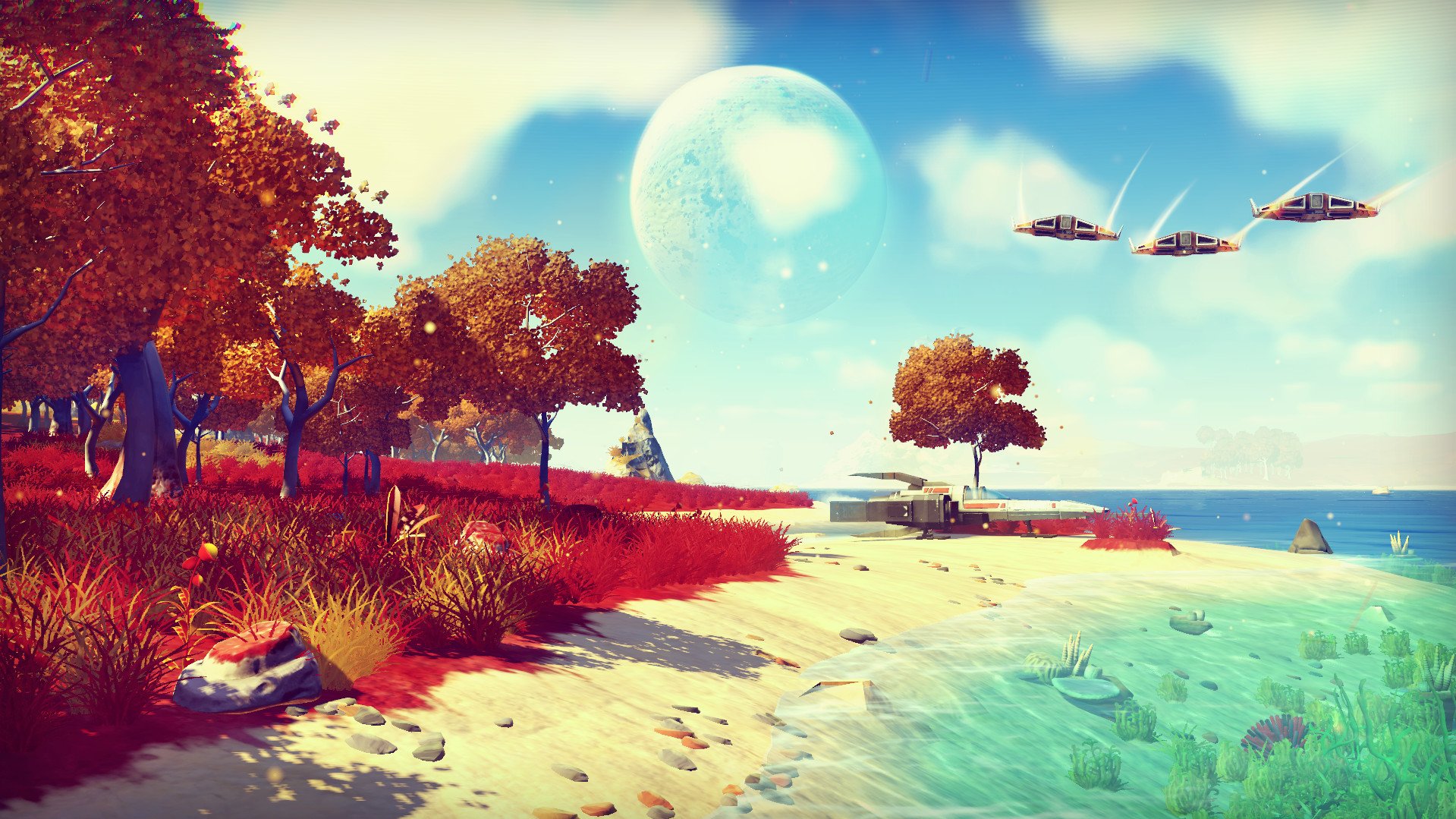
Some planets were designed with painstaking detail. Others were randomly generated from a series of templates. Each one was populated with a variety of artificially intelligent NPCs.
The ability to explore vast expanses is part of what makes the O.A.S.I.S. such a wondrous place. It's divided into 27 sectors that are 10 light-hours across, but in video game terms that is more than enough space to generate more content than any one person could consume in their lifetime.
While a lot of the worlds have been designed by people from the ground up, many of the planets are created generically by using templates that are then randomly spliced together. In our present time we have a game that does something similar: No Man's Sky. Though controversial, No Man's Sky is supported by some amazing technology: it uses procedurally generated worlds made of mathematics and algorithms to fill it's universe with over 18 quintillion randomly generated planets, all from a file size of just 6GB.
If that can be accomplished today with No Man's Sky, it gives me hope that the scope of the O.A.S.I.S could indeed be possible. Of course, if most of the heavy lifting is done server-side then this becomes even easier to pull off. By having the random planets procedurally generated at first, then editable once they are bought by a player or company, you could scale up the O.A.S.I.S. data size with less chance of running into server issues.
Servers and Bandwidth

But the OASIS utilized a new kind of fault-tolerant server array that could draw additional processing power from every computer connected to it.
Now, this is where everything gets a little technical. For anyone who has played a Massively Multiplayer Online Game, you know that lag and server issues are rampant, after all, having hundreds or thousands of people interacting takes a massive amount of computing power. Games like Sea of Thieves and World of Warcraft attempt to stop this problem by limiting the number of people who can be on the same server, or in the same instance of the world at any given moment.
EVE Online is closer to the model the O.A.S.I.S. uses. CCP, the owners of EVE, have one massive server they store the entire game world on. They do have other instances of the game but the main server, Tranquility, has had a respectable 65,000 players online at the same time. In modern terms that's a huge number, but doesn't come close to the more than 5 million people playing simultaneously in the O.A.S.I.S. In the book, they explain this by using the processing power from each console that the game runs on to add to the whole. Coupled with extremely fast fiber optic links available directly from the creators of the game, Gregarious Simulation Systems, and you can see how in the future they can push lag down to near zero.
With the future Ready Player One describes, having the game developer supplying you the bandwidth to actually play the game makes sense. Controlling the experience end-to-end ensures that the connection is optimized for the O.A.S.I.S., instead of having to deal with multiple ISPs bent on extorting more money out of both ends of the traffic stream. We can certainly draw parallels to modern ISPs and I.O.I. though hopefully, the current ISPs are slightly less maniacal Bond villains, though with the current concerns about Net Neutrality it isn't hard to imagine why IOI need to lose the contest in RP1.
We can see how someone like Google can offer us gigabit internet for cheap, however. Because Google is more interested in the product they deliver through the fiber rather than the fiber itself, they're less inclined to mess with the experience — though it does give them access to huge data flows to analyze. It is the same reason Facebook and Google are experimenting with various ways to bring the internet to everyone in the world — they don't care how you get online, only that you are there to use their services. Though you may be Rethinking using Facebook around now.
Cloud-based Gaming
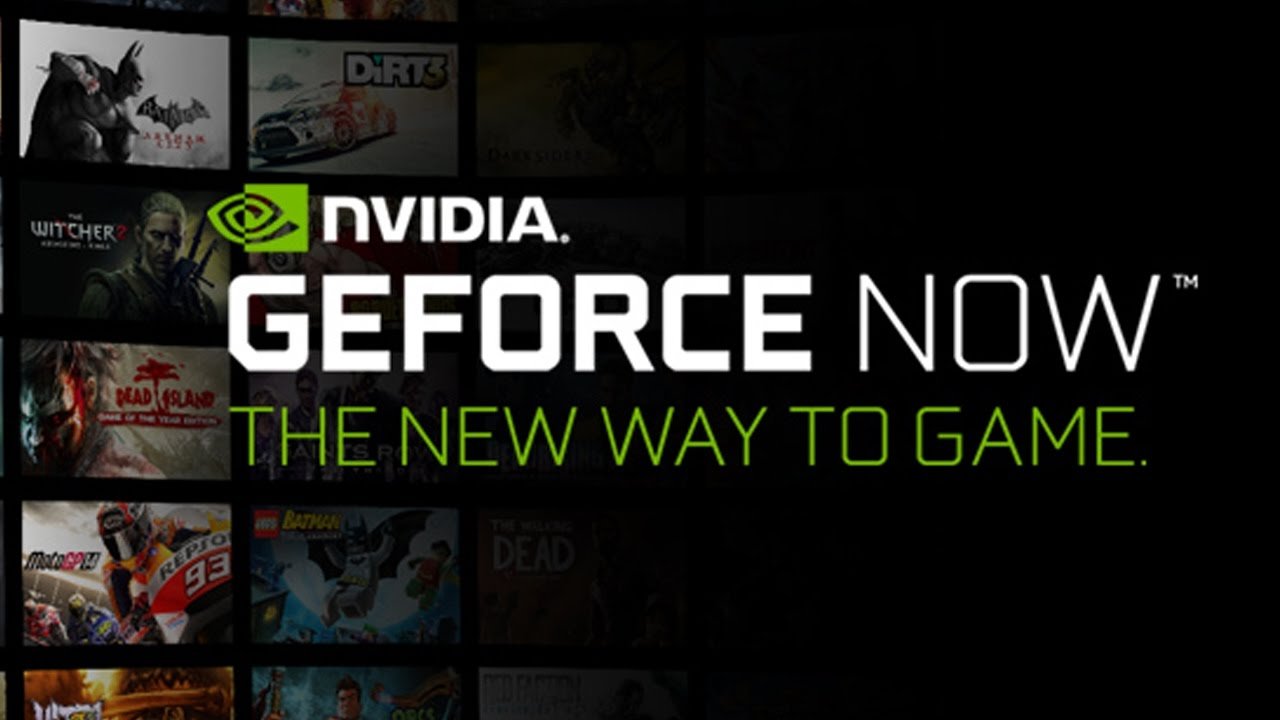
Each planet was beautifully rendered in meticulous graphical detail, right down to bugs and blades of grass, wind and weather patterns.
Since the release of Ready Player One in 2011, there have been some pretty big leaps forward in terms of streaming full games as a service. The OnLive cloud gaming service struggled to reach its full potential, but with the beta launch of NVIDIA GeForce Now the technology seems to have caught up to the promise. GeForce Now is a cloud-based gaming system that allows you to play AAA titles on just about any PC or Mac, regardless of the system specs. It does this by dedicating a computer core and graphics card to each user directly from NVIDIA's servers and streaming the video output to you — all your computer needs to is render the video and relay your commands back to the server.
There are downsides to this: you need to have an amazing internet connection with high speed and low latency so you don't experience painful lag between button press and on-screen result. Latency can be improved by cutting down on the distance and thus number of connections between you and the server. In Ready Player One, the city of Columbus, Ohio, has seen its population swell thanks to being the headquarters of GSS and the home of the O.A.S.I.S. servers — millions have flocked to the city for proximity to the servers via blazing fast fiber optic connections. So while cloud gaming still has a lot of kinks to work out it, could be a way to bring the O.A.S.I.S. to life. Still, our PCs will have to do some of the heavy lifting, but by incorporating both technologies the O.A.S.I.S. could be within reach of the common man.
Join the Geforce Now beta test
So how close are we really?
The software to run the O.A.S.I.S. is perhaps the most fantastical element of Ready Player One. Ernie Cline tries his best to explain how it could happen, but by today's modern standards having millions of simultaneous players logged in to a single instance of a such an enormous game is just not realistic. Even the latest games like Sea of Thieves have difficulty coping, and they're supported by the leading companies in the field with huge web infrastructure support behind them.
So how close are we? The answer is the same as it was for hardware: we're not there yet, but "close" is just over the horizon.

James is a Former Contributor who built his first PC when he was 13 and has never looked back. He can be found on Windows Central, usually in the corner where all the 3D printers are, or huddled around the Xbox playing the latest games.
